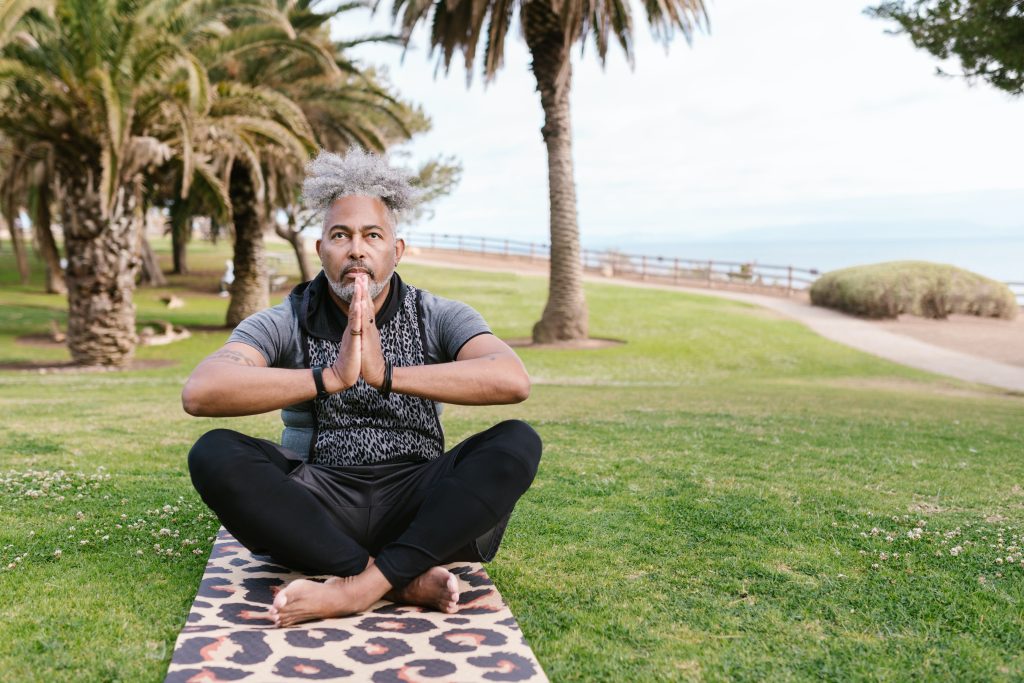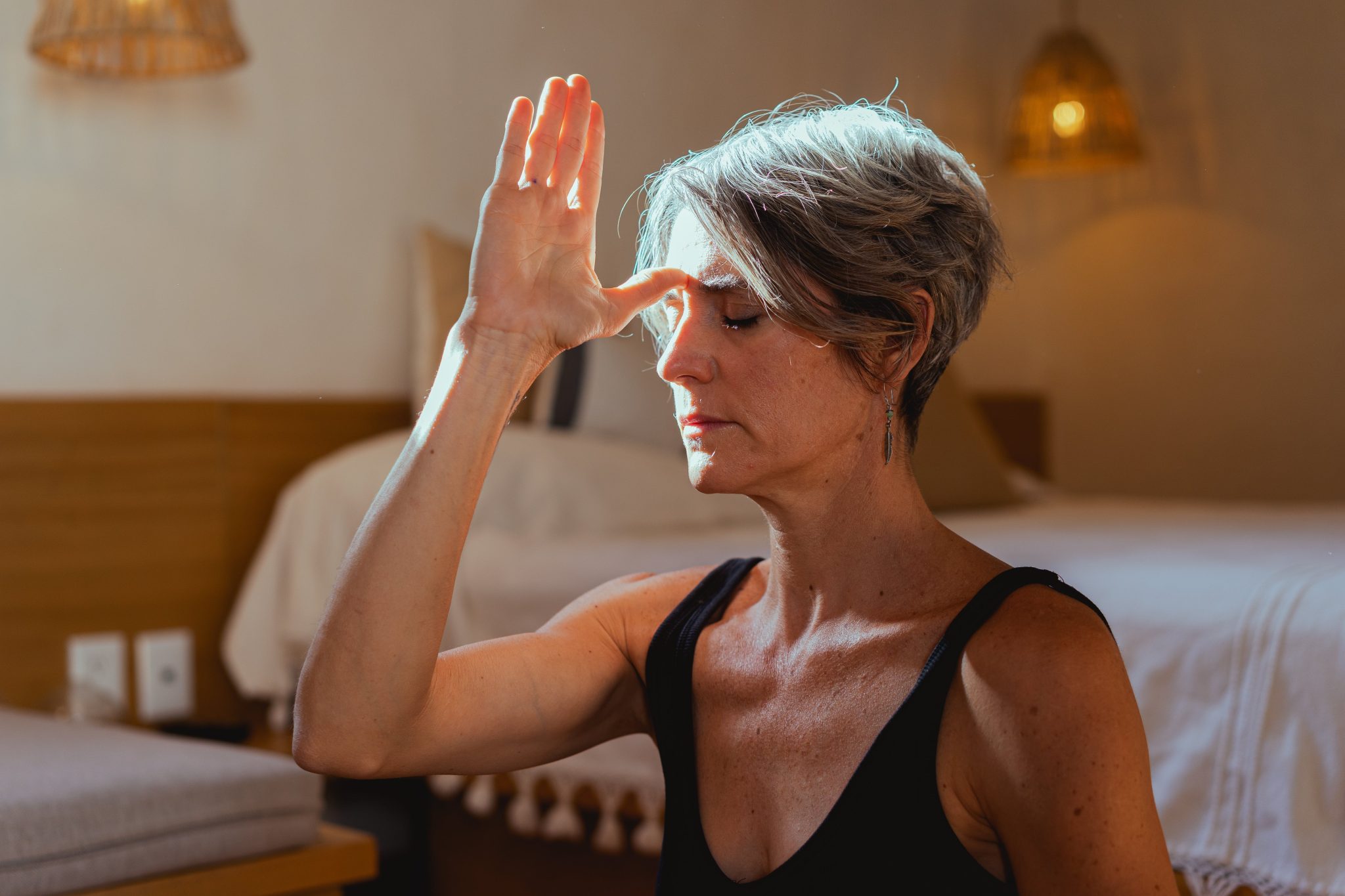The golden years can be filled with growth and serenity as seniors discover the meditation benefits that foster holistic health and aging gracefully. Through the profound mind-body synergy, older adults can navigate the natural challenges of aging with enhanced wellness and vitality. Embracing meditation alongside regular physical activity emerges as a pivotal approach to senior wellness, offering a comprehensive methodology that intertwines the tranquility of the mind with the strength of the body. This integrated pathway not only enriches the quality of life but also honors the journey of aging with mindful presence and joy.
Understanding Mindfulness in Geriatric Medicine and Gerontology
The aging process naturally brings about changes that influence both the body and mind, making mindfulness-based interventions a crucial component of senior healthcare. These practices offer a holistic approach to mindful aging, focusing on the present moment and fostering a sense of peace amidst the challenges of growing older. With the expansion of the aging population, healthcare providers are increasingly turning to these interventions as meaningful ways to enhance chronic illness management and overall quality of life.
Mindfulness in geriatric medicine provides more than an alternative treatment; it represents a fundamental shift in how we approach aging and wellness. The fusion of mindfulness-based stress reduction (MBSR) and mindfulness-based cognitive therapy (MBCT) with traditional Western healthcare models has created a dynamic and practical approach to addressing the complexities of senior health.
- Integration of Eastern and Western methodologies: This cross-cultural blend offers a rich tapestry of techniques for managing pain, navigating emotional challenges, and cultivating mental clarity.
- Supporting Neuroplasticity: Emerging research suggests that consistent meditation practices can stimulate positive neural changes, which is particularly beneficial in the geriatric population.
- Efficacy of Mindfulness-Based Interventions: Evidence shows that these strategies can significantly aid in mitigating the effects of chronic illnesses, enhancing the ability of seniors to lead fuller, more active lives.
- Cultivating Attention and Attitude: Mindfulness encourages the development of a nurturing attitude towards oneself, which can be particularly empowering for seniors facing anxiety and depression.
The crux of these interventions stems from their ability to alleviate symptoms and their potential to revolutionize our understanding of mindful aging. As the landscape of senior healthcare evolves, mindfulness-based interventions stand at the forefront, offering compassionate, patient-centered approaches to managing the complexities of aging.
The Significance of Mind-Body Practices for Aging Biological Systems

The Role of the Body in Cultivating Mindfulness
The practice of mindfulness is an asset to aging individuals facing the inevitable changes in their biological systems. By using the body as an anchor for awareness, one can experience a heightened sense of presence, which is crucial for mitigating the stress associated with physical ailments. Through deliberate physical exercises and mindful movements, older adults can tap into a more profound sense of bodily awareness, which can help alleviate discomfort and enhance mental clarity.
Chronic Disease and Pain Management through Mind-Body Approaches
Chronic conditions prevalent in geriatrics, such as arthritis and hypertension, can be more skillfully managed with mind-body modalities. Techniques like yoga and Tai Chi emphasize gentle movements and breath control, improving circulation and reducing pain levels. These holistic strategies are recognized as critical components in a comprehensive geriatric care plan, providing relief and potentially reducing the reliance on pharmacological interventions.
Biological and Psychological Benefits of Physical Exercise
Physical exercise is a cornerstone of healthy aging, with proven benefits extending beyond the cardiovascular system to include neurological health. Regular activity promotes neuroplasticity, which is essential in maintaining cognitive functions and can be protective against the progression of neurodegenerative diseases. Moreover, the simple commitment to a routine of physical exercise can foster resilience, autonomy, and a better quality of life for seniors striving for independence.
Embracing Mindfulness: A Path to Well-Being in Senior Years
In the quest for senior happiness and effective geriatric care, mindfulness practice has surfaced as a transformative avenue toward stress reduction and overall well-being. Deliberate and focused, the application of mindfulness within therapeutic models is reshaping the landscape of elder care, making a compelling case for its incorporation into daily routines.
The Rise of Mindfulness-Based Interventions in Geriatric Medicine
Amid the complexities of aging, mindfulness has emerged as a beacon of hope for the senior population grappling with increasing mental health challenges. Renowned for its roots in Eastern philosophy, mindfulness transcends its origins, evolving into a dynamic element within senior care. Therapeutic practices, including dialectical behavior therapy and Acceptance and Commitment Therapy (ACT), have embraced mindfulness, attesting to its versatility and vast potential benefits. Mindfulness-Based Stress Reduction (MBSR) and Mindfulness-Based Cognitive Therapy (MBCT) stand at the forefront, contributing to neuroplasticity that manifests as anxiety relief and heightened positive affectivity in older adults.
Understanding Mindfulness: Cultivating Presence and Acceptance
The essence of mindfulness is the cultivation of presence. Focused attention, a pillar of mindfulness practice, holds promise for seniors facing cognitive challenges, providing a pathway to enhanced quality of life and a deeper engagement with present experiences. Despite acknowledged successes of mindfulness practices in mitigating psychological distress and pain, a notable research gap persists, particularly concerning seniors with cognitive impairments. Even so, the evidence tilts favorably for mindfulness, underscoring its value in engendering a state of calm and acceptance that can significantly uplift the later years of life.
Physical Activity as a Catalyst for Brain Health in the Elderly
Regular engagement in physical activity is touted not just as a cornerstone for general health but also as a potent enhancer of cognitive faculties in the aging population. For seniors, the interplay between mental agility and physical vitality is crucial, and cognitive improvement exercises are fast becoming a key component in the maintenance of brain health.
Mind-body Exercises and Cognitive Performance
Research points towards a remarkable synergy between mind-body exercises and cognitive enhancement. Activities that incorporate both mental engagement and physical motion, such as Tai Chi, dance, and qigong, are especially influential. Not only do these exercises offer physical activity benefits, but they also advocate for a holistic approach to nurturing the mind and body, leading to improved cognitive performance in seniors. Emphasizing the dual nature of these exercises may prove significant in addressing the neuropsychological changes affiliated with aging.
Adaptive Changes in Aging Brains through Regular Movement
Incorporating consistent movement into daily routines can stimulate adaptive changes in brain structure and function in individuals exhibiting mild cognitive impairment, a precursor to severe neurocognitive disorders. Through the dedicated practice of cognitive improvement exercises, there’s promising evidence to suggest a possible reduction in biomarkers associated with neural degradation, such as Tau protein levels, enhancing overall brain health in seniors. Thus, physical activity is not simply an aspect of well-being; it is a dynamic influence on the senior brain’s health and resilience.
Meditation as a Therapeutic Tool for Mental Clarity and Emotional Stability
The practice of meditation therapy is transforming the landscape of mental health for seniors, providing a gateway to enhanced emotional balance and cognitive sharpness. As we explore this ancient self-regulatory technique, its relevance in offering therapeutic meditation solutions for the challenges faced by the aging population becomes increasingly evident. Not only is meditation an accessible discipline, but it can also be a cornerstone habit for seniors seeking to hone mental faculties and enrich emotional well-being.
- Stress Reduction: Regular meditation sessions contribute to a palpable decrease in stress levels among older adults, fostering an environment of tranquility and resilience.
- Chronic Pain Management: Through mindfulness and body awareness, therapeutic meditation practices help seniors mitigate the intensity and perception of chronic pain.
- Cognitive Function Enhancement: Meditation stimulates neural pathways and encourages cognitive flexibility, which is essential for maintaining mental acuity in senior years.
- Emotional Healing with Guided Imagery: This form of meditation leverages visualization to activate the mind’s healing potential, leading to emotional repair and balance.
Incorporating meditation into daily routines enables seniors to navigate the intricacies of aging with grace. Positioned as a pillar of health and wellness, therapeutic meditation not only sharpens the mind but also equips older adults with the tools necessary for managing anxiety, depression, and grief. Ultimately, the adoption of meditation as a therapeutic tool serves as an empowering agent for seniors striving for mental clarity and emotional stability as they embrace their later years.
Exploring the Interplay of Physical and Cognitive Function in Aging

The Potential of Mind-Body Practices in Delaying Cognitive Decline
The graceful symbiosis of body and mind, achieved through techniques like Tai Chi and yoga, is more than mere exercise; it is mindful exercises for seniors at its finest. These practices, characterized by fluid movements and honed concentration, offer a multi-faceted approach to stalling the effects of aging on the brain. While improving physical capabilities, they also enrich mental acuity, thereby stalling cognitive decline and fostering the robustness of the aging mind.
Combating Mild Cognitive Impairment (MCI) with Mindful Movement
For those grappling with the initial stages of cognitive decline, mindful movement stands as a promising form of mild cognitive impairment management. These gentle exercises can significantly bolster balance, cognitive performance, and neural health indicators like αβ1–42 protein levels. By customizing these activities to suit the diverse needs of seniors, we can not only address depressive symptoms but also pave the path for sustained independence and a higher quality of life in our later years.
Mindfulness-Based Interventions: Tailoring to the Needs of Seniors
The landscape of senior mental health is evolving, with an increasing focus on mindfulness interventions that cater specifically to the aging population. To be effective, these interventions must be adapted to respect the cognitive and physiological stages unique to seniors. As we delve into the realm of customized mindful practices, the goal remains steadfast: to develop adapted therapies for elderly individuals that are not only practicable but also resonate with their distinctive life phase. There is no one-size-fits-all when it comes to these techniques, and hence, the intricate process of personalization is not just beneficial but necessary.
Practitioners and caregivers who work with seniors are identifying the profound impact that specially tailored mindfulness interventions can have on the quality of life for older adults. By acknowledging the varying levels of cognitive agility and physical stamina among this demographic, mindfulness programs can be designed with modified training sessions that maintain engagement without causing undue stress. This gentle, tailored approach can lead to enhanced cognitive function, reduced levels of distress, and, quite importantly, a heightened sense of well-being and independence that all seniors deserve.







